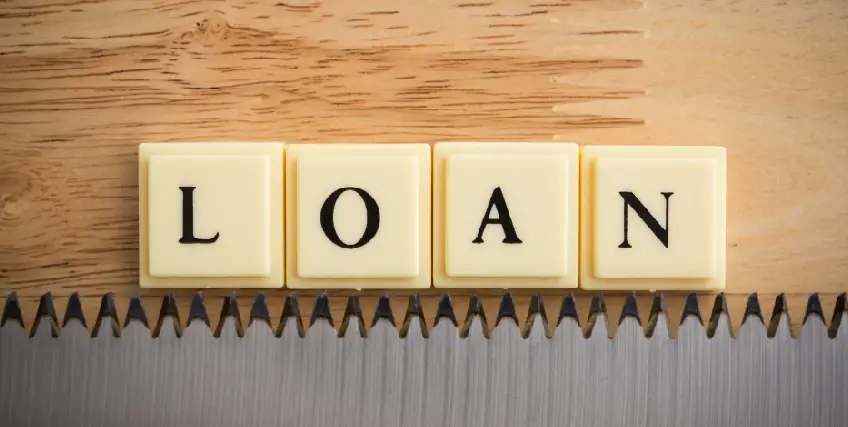What happens if you default on an unsecured business loan?
February 17, 2025 | Last Updated on: February 17, 2025

Many small businesses seek out financing to fuel growth or navigate financial challenges. For many entrepreneurs, business loans can be a huge boost for funding startup capital, purchasing real estate or equipment, hiring staff, and much more. That said, there are risks with any type of loan, especially if you have to put up collateral to secure the loan.
That’s why some risk-averse owners look for unsecured corporate loans. With collateral business loans, or secured loans, you risk forfeiting the business or personal assets offered as collateral if you default. An unsecured corporate loan does not require collateral, so there’s no collateral to use. However, no small business financing is completely risk-free, so business owners must understand what happens if they default on an unsecured corporate loan.
In this article:
- The differences between unsecured business loans and secured loans
- What happens if you default on an unsecured business loan
- How to avoid defaulting on an unsecured corporate loan
The differences between unsecured corporate loans and secured loans
We touched on the primary difference in the introduction, but let’s expand.
Secured business loans
Most business financing is secured. That is, it requires some type of collateral from the borrower. Collateral is typically a business asset, like commercial real estate, inventory, or business equipment, but it may also be a personal asset like a home, vehicle, or any personal item of value.
To get the desired funding, you’ll have to hand over the title of the asset, getting it back after you pay off the loan. If you default on the loan, you’ll have to sign over the title to the asset to the lender.
Lenders usually prefer collateral business loans because they lower the risk of default. Not only is a borrower more motivated to pay back a secured business loan, but even if they fail to do so, the lender still gets an asset.
That said, it’s not just greed that makes lenders request collateral. Collateral lowers the risk, which incentivizes banks and online lenders to approve business owners with bad credit or no business credit history. The lower risk also typically means secured loans have lower interest rates than unsecured corporate loans or other financing options of the same value.
Unsecured corporate loans
Unlike secured loans, unsecured small business loans do not require collateral. They’re issued based on the borrower's creditworthiness. Although there’s no collateral, you will often have to provide a personal guarantee or get a guarantee from a co-signer like a co-owner, friend, or relative willing to pay off the loan if your business defaults.
You can get both short-term unsecured business loans and long-term unsecured business loans, but the terms of either will depend on several factors:
- Business character: Aspects of the business, like its size, structure, reputation, location, and time in business will all influence a lender’s decision.
- Revenues: A business’s cash flow trends, debt payment histories, and monthly or annual revenues demonstrate the business’s ability to pay bills on time.
- Capital: A business’s assets, like bank statements, accounts receivable, and equipment all contribute to showing a business’s ability to generate revenue now and in the future.
- Conditions: External factors like market rates, federal regulations, and currency rates may all influence a lender’s tolerance for unsecured loans.
There are several types of unsecured corporate loans, including unsecured term loans, working capital loans, and unsecured business lines of credit. Each has its own advantages and can support businesses for both short- and long-term business needs.
Usually, the application process for unsecured finance is faster because there’s no appraisal of collateral during the approval and underwriting process.
What happens if you default on an unsecured corporate loan?
One of the biggest consequences when you fail to meet the repayment terms and conditions of a secured loan is that you lose the collateral. That’s just the tip of the iceberg of penalties and consequences, each of which could happen if you default on an unsecured loan.
You won’t lose any collateral if you default on an unsecured corporate loan, but you may experience the following penalties.
Negative credit impact
When you miss a loan payment, it’s reported to the three main business credit bureaus: Dun & Bradstreet, Experian Business, and Equifax Small Business. Whether you’re a new business or an established one, this report will damage your business credit score and, if you made a personal guarantee, will impact your personal credit score, too. (Plus, that of any additional guarantor.)
If you default on a loan, you likely missed multiple payments along the way, meaning your credit score has taken multiple hits before the final blow of a loan default. The damage to your credit score will decrease your chances of approval in the future, put you in line for higher interest rates, and may reduce the number of funding options available to you. It could even impact on your ability to establish relationships with suppliers or vendors.
Additional costs
Failing to make on-time payments will incur late penalty fees and non-payment penalties. These add to the total cost of the loan. In some cases, they may also accrue interest, so fees grow over time.
Depending on the original loan terms, the lender may also be able to change the terms due to non-payment, which can increase future monthly payments. Not to mention, you’ll likely lose all future borrowing potential with the lender.
Legal consequences
Defaulting on a loan may lead to the involvement of a collection agency or even a lawsuit. Going to court is expensive and time-consuming in its own right and, if you lose the case, you may owe additional penalty fees in addition to the lender’s court costs. If you can’t pay, the lender may be allowed to seize assets and tax returns despite the loan being unsecured.
How to avoid defaulting on an unsecured corporate loan
Defaulting doesn’t happen after a single missed payment. (At least, not usually.) The specific terms vary between lenders and loan products, but most loan agreements state how long you have to miss payments for it to constitute a default.
Lenders usually notify borrowers they are nearing default, often after at least 30 days of nonpayment or two consecutive missed monthly payments. Unsecured corporate loans typically do not go into default immediately. Lenders want to give you a chance to make payments or work out a solution.
While the easiest way to avoid default is by only agreeing to a loan, you’re positive you can pay back and subsequently meeting the loan terms, if you’re nearing default, there are several options:
- Notify the lender: If you’re concerned about missing payments, notify the lender as soon as possible. They want you to be able to repay the loan, and a loan officer can help you develop a deferment plan or pause payment obligations until you have more liquidity. They could also revisit the loan terms to extend the repayment term, lower the fee schedule, or secure the loan with personal assets to lower the interest rate.
- Make smaller payments: After notifying the lender, you can show good faith by still paying something. Plus, that will reduce the principal you have to repay if you do go into default.
- Explore refinancing: Small business owners with good credit or personal collateral to offer might be able to refinance the loan to lower the monthly payment or secure better repayment terms. You could also change to another loan option that makes more sense for your current situation.
- Consult professionals: Not every business has the resources of in-house counsel or accounting, but if you’re at risk of default, you should consult professionals. Debt counselors, bankruptcy attorneys, and accountants may all be good resources for small business owners at risk of defaulting or in need of improved business finance management.
Can you still get financing after defaulting on an unsecured corporate loan?
Many business owners assume they won’t be able to get future business financing if they default on an unsecured corporate loan. That’s often not the case. Regardless of your credit history, you may still be able to get business funding from traditional or alternative lenders. You may not be eligible for the best terms or have the minimum credit score to meet eligibility requirements for some loan products, but financing is certainly not out of the question.
Business owners with bad credit may still be able to qualify for term loans, SBA loans backed by the U.S. Small Business Administration, business lines of credit, and alternative financing options like invoice factoring or merchant cash advances (MCAs).
Final thoughts
An unsecured corporate loan can help your business grow with a lump sum upfront payment or more flexible financing without the risk of forfeiting business assets. However, an unsecured corporate loan is not risk-free. Defaulting on a loan will lead to penalty fees, a decrease in your credit score, and could lead to legal action that may expose business assets to seizure.
If you’re at risk of defaulting on an unsecured corporate loan, notify the lender right away to begin working towards a resolution.
FAQs on unsecured corporate loans
What is an unsecured corporate loan?
An unsecured type of loan that does not require collateral to secure the loan. The loan terms are based on the borrower’s creditworthiness. Unsecured loans reduce the risk of forfeiting business assets in the event of default.
What happens if you default on an unsecured business loan?
Defaulting on an unsecured business loan may lead to penalty fees, a negative impact on your credit score, and even legal consequences. If you fail to repay the loan or set up a payment plan, the lender may take legal action against your company and, if you’ve signed a personal guarantee, pursue seizure of your personal assets.
What types of unsecured business loans exist?
There are both short-term unsecured business loans and long-term unsecured business loans. Some loan products that may be unsecured include term loans, working capital loans, SBA loans, business lines of credit, and business credit cards.
How does an unsecured business loan work?
Unsecured corporate loans tend to be riskier to lenders than secured ones. For that reason, they often have stricter qualification requirements, higher interest rates, or a higher origination fee. Otherwise, however, they work just like secured loans.
You’ll agree to loan terms specific to the lender, loan application, and loan product, then make repayment according to the loan agreement. Failure to pay won’t result in automatic asset seizure since you aren’t putting up collateral, but it may lead to a range of serious consequences.
How do you get an unsecured business loan?
To get an unsecured corporate loan, you’ll likely need to have good credit and a well-performing business. Do some research to understand what you can afford to pay back and the right type of financing for your business needs. Then, compare lenders to see who can offer you the best terms.
When you’re ready to apply, prepare documentation like a business plan, financial statements, tax returns, licenses or permits, and your business information. Then, complete your loan application, submit it, and wait for approval.




